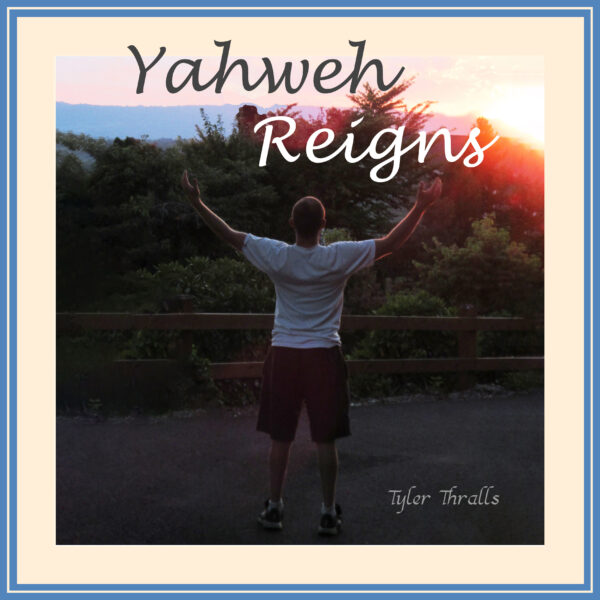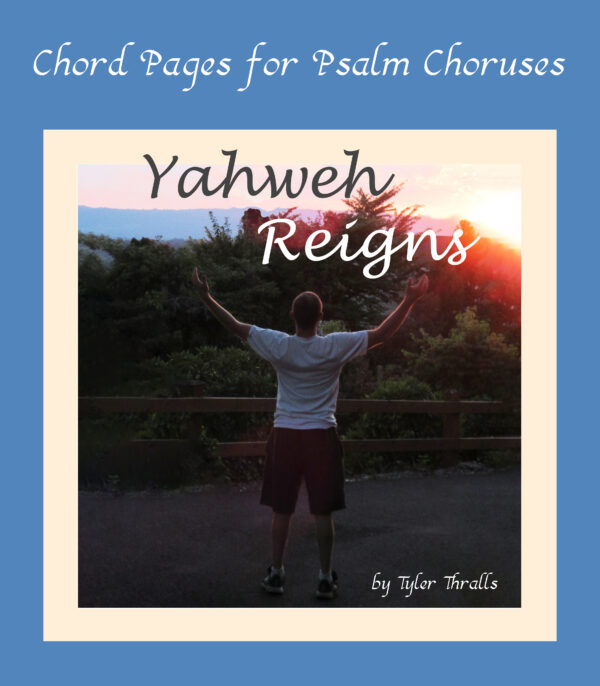Psalm Singing
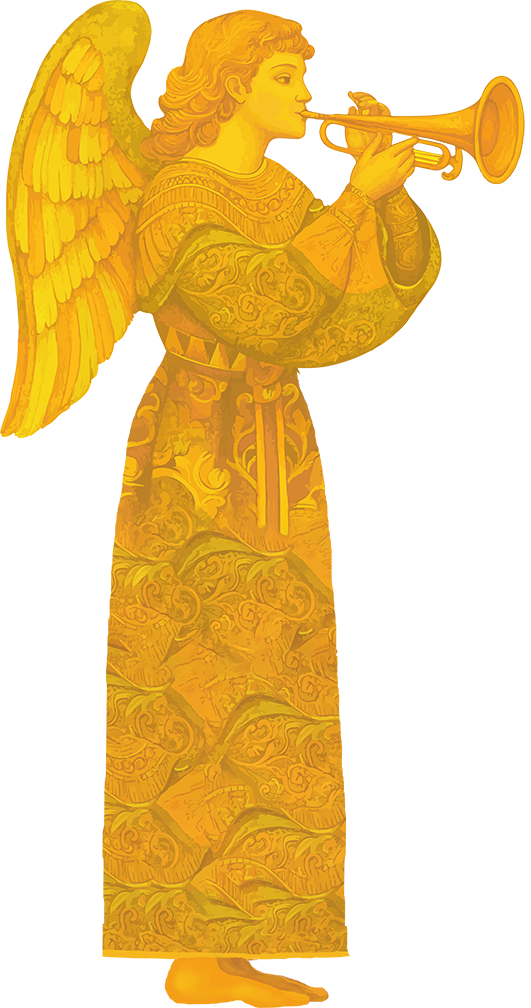
Psalm Refrain Samples
Psalm 23:6 Surely Your Goodness and Mercy
Psalm 90:14 Satisfy Us in the Morning
A digital album with 15 psalm refrains named Yahweh Reigns is available for purchase.
This album contains refrains from the following Psalms:
Psalm 23 (Surely Your Goodness), Psalm 8 (O Lord our Lord), Psalm 1 (His Delight is in the Law), Psalm 19 (The Heavens Declare), Psalm 19 (May the Words of My Mouth), Psalm 40 (He Brought Me Out), Psalm 42 (Why are You Downcast?), Psalm 46 (Be Still and Know), Psalm 80 (Restore Us O God), Psalm 87 (All My Fountains are in You), Psalm 90 (Satisfy Us in the Morning), Psalm 97 (Yahweh Reigns), Psalm 99 (O Magnify the Lord), Psalm 104 (May the Glory of the Lord), Psalm 146 (Praise the Lord O my Soul)
A collection of chord sheets to go with the songs in the Yahweh Reigns album is also available. Here are sample chord pages:
Chord Page Samples
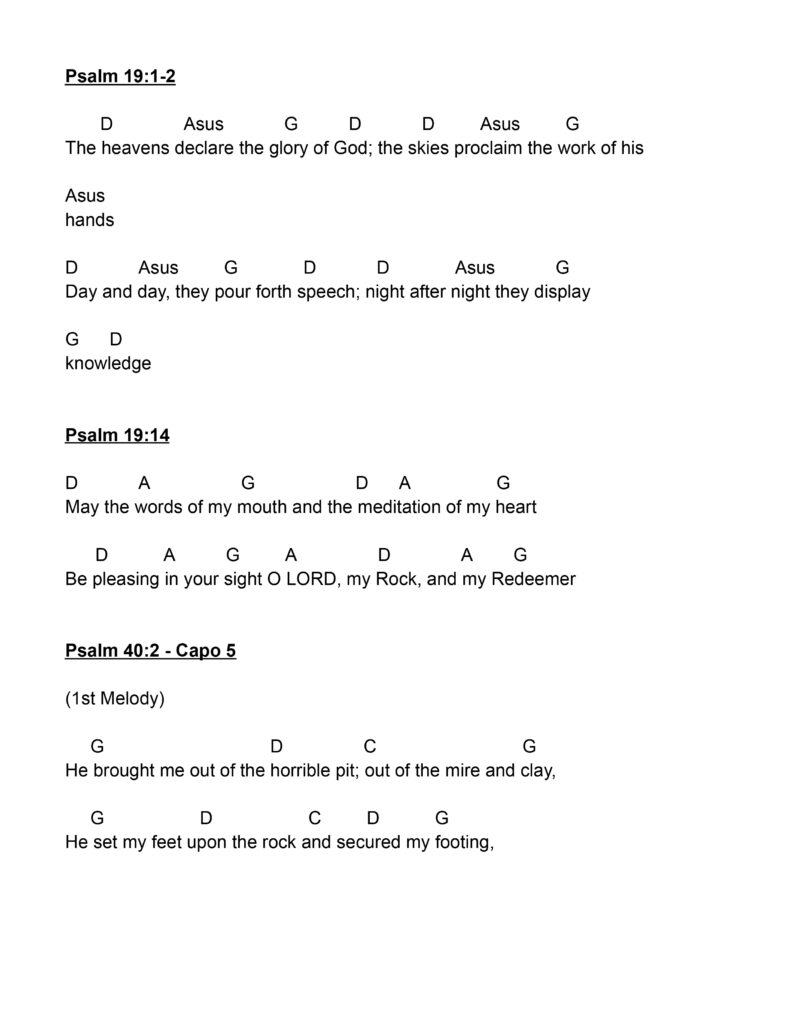

Chord Pages for Yahweh Reigns
A collection of printable pages with lyrics and chords for all the Psalm refrains in the Yahweh Reigns album (15 different psalms).
This is a six-page PDF.
These chord Pages are in easy-to-print-out, easy to read PDF format, for use when singing and playing accompaniments with the refrains, on your own or with your family or worship community.
“Let the word of Christ dwell in you richly . . . as you sing psalms, hymns, and spiritual songs . . .” (Col. 3:16)
Getting Started with Psalm Refrains
If you are new to singing psalms, starting with one verse can be helpful. Therefore, I have created 15 short psalm refrains. Here are some of the ways they can be used:
- Simply listen to them for enjoyment
- Sing along and begin to pray these verses to the Lord
- Learn to play them on an instrument (chord sheets are available)
- Incorporate them into an entire psalm–
Read the whole psalm and pause at appropriate intervals to sing the refrain. Sometimes these intervals are marked with “Selah” in the Bible, or translators may have left a space between stanzas.
Check out an example of this in the video below:
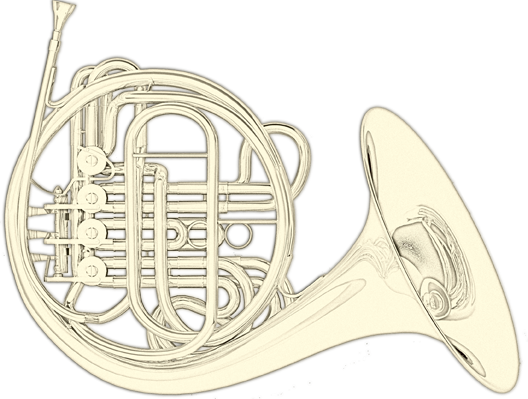
I remember reading this one day and asking myself, “Can I sing an entire psalm?” The quick answer was . . . “no.” And yet, the Psalms have always been sung since their creation, and I think in recent church history, especially among evangelicals, it has become a greater need. In the intro video, I give some musical explanation for how to sing the Psalms, but here I want to list out some reasons why. Why should we sing the Psalms?
Why Sing the Psalms?
1. First, psalms are songs!
The Psalms are the hymnal of the Bible. They are meant to be sung and played. Many psalms read plainly, “Psalm 120, A Song of Ascents,” or they instruct, “With stringed instruments,” and “For flutes” (Ps. 4 and 5). Think of a songwriter composing a song. If they heard that people were busy reading their songs but hardly ever singing or playing them, the composer would think this is awfully strange, and sad.
2, A Compass for Prayer and Worship
Oftentimes, our worship songs and prayers can become too shallow, or too narrowly focused, or too prim and proper (I know this happens to me). But the breadth and depth and raw language of the Psalter help us to keep a robust life of prayer and worship.

3. Corporate Worship
“Come my children, listen to me,” “Glorify the Lord with me,” “There is the little tribe of Benjamin leading them,” “among throngs of people I will praise you.” “Let us go to the house of the Lord.” “Let everything that has breath praise the Lord.” In this smattering of examples it is evident that corporate worship is a strong theme that runs throughout the Psalms. And remember Paul’s exhortation to “speak to one another” with psalms. (Eph 5:19)
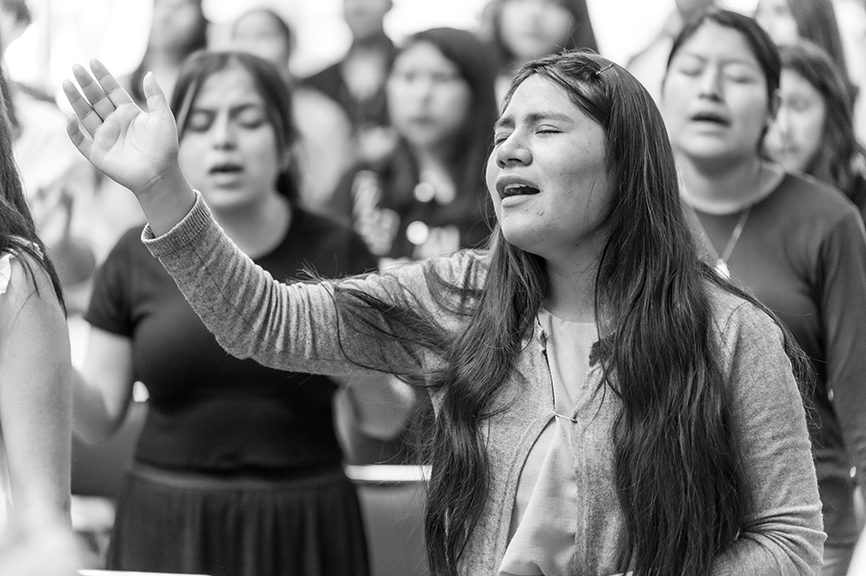
4. Spiritual Warfare
As you may know, David would play his harp, in Saul’s presence (and probably sing his psalms) which would drive evil spirits out of the king. This practice is also attested by the Desert Fathers of the early church who would often chant the psalms. One Famous writer, Evagrius Pontious, counsels monks how to combat evil thoughts using psalms, “Thus if the demons say, ‘When will he die ‘and his name be forgotten?” (Ps 40:5) [the monk] then also replies, ‘ I will not die, but live and proclaim the works of the Lord!’ (Ps. 117:17)”
5. Memory
When a song is sung, it often sinks into your bones and marrow. It comes back to you as you’re walking down the road or doing a daily chore. This is a perfect way to live out a constant lifestyle of worship., “Seven times a day I praise you,” (Ps. 119:164) and “Talk about [the LORD’s commands] when you sit at home and when you walk along the road, when you lie down and when you get up” Deut. 6:7)

6. Tradition
Israel and the Church have carried on this tradition for 3000 years now: from the choral singing of Levites in the temple, to the Gregorian chanting of monks in the Middle Ages, to the metered poetry in The Bay Psalm Book of the Puritans, to the 19th century hymns that were based on psalms like Henry Baker’s “The KIng of Love my Shepherd is,” to modern worship bands like Shane and Shane and the Gettys. This Tremendous weight of tradition should inspire us to join the saints in singing the psalms.
7. Beauty
Reading a psalm, especially quietly, silently, and individually is one experience. But when you go into a congregation of saints singing the psalms with harps, lutes, drums, cymbals, and dancing, you have quite a different experience. The corporate, musical experience of psalm singing is something people intrinsically desire and ultimately, it reminds us of the great throne room experience of thousands upon thousands of saints and angels falling down before the Lord in worship, playing harps, and singing in loud voices.


An audio book (with digital files of both stories and song refrains) is in process, and will be available in the near future. It is called The Lifesong of Nehemiah. For more information, see the Audio Book Page.

